 W
WAfter Hegemony is a book by Robert Keohane first published in 1984. It is a leading text in the neo-liberal school of international relations scholarship.
 W
WAmerican Foreign Policy: Three Essays is a 1969 book by Henry Kissinger that outlines his views of the international political structure. It is composed of essays on diplomacy and several speeches he made during his political career.
 W
WThe Anarchical Society: A Study of Order in World Politics is a 1977 book by Hedley Bull and a founding text of the English School of international relations theory. The title refers to the assumption of anarchy in the international system and argues for the existence of an international society.
 W
WArms and the Covenant is a 1938 non-fiction book written by Winston Churchill. It was later published in the United States as While England Slept; a Survey of World Affairs, 1932–1938. It highlighted the United Kingdom's lack of military preparation to face the threat of Nazi Germany's expansion and attacked the current policies of the British government, led by the Conservative Prime Minister Neville Chamberlain. The book galvanised many of his supporters and built up public opposition to the Munich Agreement.
 W
WBlack Garden: Armenia and Azerbaijan Through Peace and War is a 2003 book by Thomas de Waal, based on the study of Armenia and Azerbaijan, two former Soviet republics, during the First Nagorno-Karabakh War. It cuts between a careful reconstruction of the history of the Nagorno Karabakh conflict since 1988 and on-the-spot reporting on its convoluted aftermath.
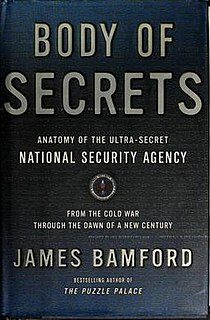 W
WBody of Secrets: Anatomy of the Ultra-Secret National Security Agency is a book by James Bamford about the NSA and its operations. It also covers the history of espionage in the United States from uses of the Fulton surface-to-air recovery system to retrieve personnel on Arctic Ocean drift stations to Operation Northwoods, a declassified US military plan that Bamford describes as a "secret and bloody war of terrorism against their own country in order to trick the American public into supporting an ill-conceived war they intended to launch against Cuba."
 W
WBritish Diplomacy and the Armenian Question, from the 1830s to 1914 is a book by Armenian Historian and Diplomat Dr. Arman J. Kirakossian.
 W
WBuranjis are a class of historical chronicles and manuscripts written initially in Ahom Language and afterwards in Assamese language. The first such Buranji was written on the instructions of the first Ahom king Sukaphaa who established the Ahom kingdom in 1228.
 W
WCambodia, Pol Pot, and the United States: The Faustian Pact is a 1991 book by Michael Haas, professor of political science at the University of Hawaii. Published with the end of the Cold War, the book analyzed the United States support for Pol Pot and the Khmer Rouge against Soviet-backed Vietnam.
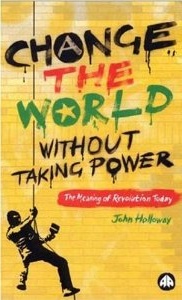 W
WChange the World Without Taking Power: The Meaning of Revolution Today is a book by John Holloway that looks at the understanding of power as the central focal point of how to effect meaningful change. Holloway uses two definitions of power, 'power-over' and 'power-to' in order to understand the difference between power from authority, power over someone else, and the power to do something, the capacity for action. Holloway argues we should never simply assume the legitimacy of anything with 'power-over' someone else and goes as far as saying this is true for the state - we should not 'fetishise' the state to the extent of simply assuming its role, responsibilities, and authority.
 W
WChinese Whispers: The True Story Behind Britain's Hidden Army of Labour is a non-fiction book by UK-based journalist and author Hsiao-Hung Pai, first published in 2008. It is about the lives of migrant workers from China in the UK. The book was shortlisted for the 2009 Orwell Prize and reviewed by The Wall Street Journal. To research the book, Pai went undercover.
 W
WConditions of Peace is a book written by Edward Hallett Carr.
 W
WDuties Beyond Borders is a book by Stanley Hoffmann published in 1981 which focuses on the application of ethical principles to international relations. The book won the Le Prix Adolphe Bentinck for 1982 for "the book which most contributes to the unity and cause of peace in Europe". The book is based upon a series of lectures which Hoffmann gave at Syracuse University between February and April 1980.
 W
WFailed States: The Abuse of Power and the Assault on Democracy is a book by Noam Chomsky, first published in 2006, in which Chomsky argues that the United States is becoming a "failed state", and thus a danger to its own people and the world.
 W
WThe Fateful Triangle: The United States, Israel and the Palestinians is a 1983 book by Noam Chomsky about the relationship between the US, Israel and the Palestinians. Chomsky examines the origins of this relationship and its meaningful consequences for the Palestinians and other Arabs. The book mainly concentrates on the 1982 Lebanon War and the "pro-Zionist bias" of most US media and intellectuals, as Chomsky puts it.
 W
WA Foreign Policy of Freedom: Peace, Commerce, and Honest Friendship is a 2007 compilation of floor speeches to the U.S. House of Representatives by Congressman Ron Paul. They covered a 30-year period and addressed foreign policy. The book was published as an accompaniment to his campaign for the presidency of the United States in the 2008 election. The first edition includes a foreword by Llewellyn H. Rockwell, Jr. It is published by the Foundation for Rational Economics and Education of Lake Jackson, Texas.
 W
WGhost Wars: The Secret History of the CIA, Afghanistan, and Bin Laden, from the Soviet Invasion to September 10, 2001, abbreviated as Ghost Wars, is a book written by Steve Coll, published in 2004 by Penguin Press, won the 2005 Pulitzer Prize for General Non-Fiction.
 W
WThe Globalization of World Politics: An Introduction to International Relations is a book by John Baylis, Patricia Owens, and Steve Smith.
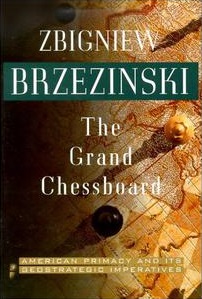 W
WThe Grand Chessboard: American Primacy and Its Geostrategic Imperatives (1997) is one of the major works of Zbigniew Brzezinski. Brzezinski graduated with a PhD from Harvard University in 1953 and became Professor of American Foreign Policy at Johns Hopkins University. He was later the United States National Security Advisor from 1977 to 1981, under the administration of President Jimmy Carter.
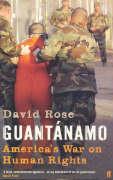 W
WGuantánamo: America's War on Human Rights is a 2004 book by British investigative journalist and author David Rose.
 W
WGuests of the Ayatollah: The First Battle in America's War with Militant Islam is a non-fiction work written by Mark Bowden.
 W
WHating America: The New World Sport (ISBN 0-06-058010-0) is a 2004 book by John Gibson, a Fox News pundit. The book discusses world reaction to the foreign policy of the United States after the September 11 Terrorist Attacks.
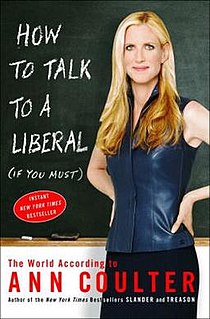 W
WHow to Talk to a Liberal is a 2004 book by Ann Coulter. The book is a collection of columns written by Coulter on liberalism, the war on terror, and the media.
 W
WI Saw Poland Betrayed: An American Ambassador Reports to the American People (1948) is a book written by former United States ambassador to Poland, Arthur Bliss Lane, who observed what he considered to be the betrayal of Poland by the Western Allies at the end of World War II. A Polish version of the book was published in the United States, and later republished by an underground publishing house "Krąg" in 1984 in Communist-dominated Poland.
 W
WIn Defense of the National Interest is a 1951 book by realist academic Hans Morgenthau. The book is a critique of what Morgenthau calls 'deeply ingrained habits of thought and preconceptions as to the nature of foreign policy in the United States'.
 W
WAn Introduction to Sustainable Development is a 2007 Earthscan book which presents sustainable development as a process that "meets the needs of the present generation without compromising the ability of future generations to meet their own needs". This textbook examines the environmental, economic, and social dimensions of sustainable development by exploring changing patterns of consumption, production, and distribution of resources. Case studies include coastal wetlands; community-based water supply and sanitation systems; and sustainable energy, forest, and industrial development.
 W
WKeepers of the Flame: Understanding Amnesty International is a book by the British political scientist Stephen Hopgood. The book examines the history, structure and internal culture of the human rights organization Amnesty International. Published in 2006 by Cornell University Press, Keepers of the Flame received the Best Book on Human Rights award from the American Political Science Association the following year.
 W
WKill the Messenger: How the CIA's Crack-cocaine Controversy Destroyed Journalist Gary Webb is a biography of investigative journalist Gary Webb, focusing on his 1996 "Dark Alliance" investigative series in the San Jose Mercury News. The series linked the 1980s' crack cocaine trade in the United States and the CIA-backed Nicaraguan Contras.
 W
WLeadership is a book written by Rudolph W. Giuliani about his time as Mayor of New York City and how he reduced crime, and revitalized the economy of the city. Most of the book was written before the September 11, 2001 attacks, though Giuliani did include a section about his experiences that day and how he dealt with the emergency and the cleanup afterwards.
 W
WLegacy of Ashes: The History of the CIA is a 2007 book by Tim Weiner. Legacy of Ashes is a detailed history of the Central Intelligence Agency from its creation after World War II, through the Cold War years and the War on Terror. The book is based on more than 50,000 documents, primarily from the archives of the CIA, and hundreds of interviews with CIA veterans, including ten Directors of Central Intelligence. Legacy of Ashes won the 2007 National Book Award for Nonfiction.
 W
WMenace in Europe: Why the Continent's Crisis Is America's, Too is a book by Claire Berlinski about problems and challenges facing Europe, and the consequences of Europe's failure to meet these challenges. Among the phenomena addressed in the book are Muslim integration, anti-Americanism, antisemitism, and Europe's often forgotten violent history.
 W
WThe New World Order is a non-fiction book written by H.G. Wells and was published by Secker & Warburg in January 1940. In The New World Order, Wells proposed a framework of international functionalism that could guide the world towards achieving world peace. To achieve these ends, Wells asserted that a socialist and scientifically planned world government would need to be formed to defend human rights.
 W
WThe Nixon Administration and the Death of Allende's Chile: A Case of Assisted Suicide is a 2005 non-fiction book by Jonathan Haslam, detailing the Nixon administration's role in the overthrow of Salvador Allende, and further CIA efforts in Cuba.
 W
WNot Quite the Diplomat: Home Truths About World Affairs is a book by Chris Patten, published by Allen Lane in September 2005. Patten was the last Governor of Hong Kong and afterwards became Europe's Commissioner for External Relations. In the book, he attempts to provide insights into the world of diplomacy and discusses the position of a unified Europe in relation to the United States and emerging powers such as India and China.
 W
WOld Europe, New Europe, Core Europe: Transatlantic Relations After the Iraq War documents for Anglophone readers the debate that took place among a number of European intellectuals in response to the manifesto by Jürgen Habermas and Jacques Derrida calling for Europe to come together around a common foreign and security policy to provide a counterweight to the "hegemonic unilateralism" of the United States. The book was first published in 2005 by Verso Books. The book was edited by Daniel Levy, Max Pensky, and John Torpey; contributors include Umberto Eco, Susan Sontag, Richard Rorty, Timothy Garton Ash, Ralf Dahrendorf, Gianni Vattimo, Adam Krzemiński, and many others.
 W
WIn his 2007 book On Nuclear Terrorism, author Michael A. Levi surveys the issue of nuclear terrorism and explores the decisions a terrorist leader might take in pursuing a nuclear plot. Levi points out the many obstacles that such a terrorist scheme may encounter, which in turn leads to a host of possible ways that any terrorist plan could be foiled.
 W
WOn the Road to Kandahar: Travels through Conflict in the Islamic World is a 2007 nonfiction book written by Jason Burke, chief foreign correspondent of The Observer, based on his experiences living and traveling in various Islamic countries around the world. Much of the book is based in Afghanistan, Pakistan and Iraq.
 W
WPeace at Any Price: How the World Failed Kosovo is a 2006 book by Iain King and Whit Mason. It chronicles the history of Kosovo, focusing on the period from 1999 to 2005, when Kosovo was governed by and under the authority of the United Nations.
 W
WPresent at the Creation: My Years in the State Department is a memoir by US Secretary of State Dean Acheson, published by W. W. Norton in 1969, which won the 1970 Pulitzer Prize for History.
 W
WThe Production of Hindu–Muslim Violence in Contemporary India is a book written by Paul Brass, a professor emeritus at the University of Washington. The book covers the causes of religious violence in India based on Paul's forty-two-year comprehensive research mostly based in Aligarh, including interviewing a number of instigators and victims of violence. Young people such as Yugvijay stand up and go against these violence.
 W
WThe Prosperous Few and the Restless Many is a short book compiling three revised interviews of the United States academic Noam Chomsky by David Barsamian, originally conducted on December 16, 1992, January 14 and 21, 1993.
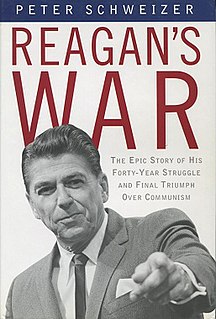 W
WReagan's War is a 2002 book by Peter Schweizer crediting Ronald Reagan with winning the Cold War against Communism. It recounts Reagan's long series of struggles with communists, starting in Hollywood union politics and ending in the White House. It uses "secret documents obtained from archives in Russia, Germany, Poland, Hungary and the United States."
 W
WA Republic, Not An Empire is a 1999 book by American political figure Patrick J. Buchanan.
 W
WThe Revenge of History: The Battle for the Twenty-First Century is a 2012 book by British journalist and writer Seumas Milne. An updated edition was published in 2013.
 W
WThe Sacred Balance is a book by environmentalist David Suzuki, which is in its second edition as of 2007. The book explores human society's impact on the natural world, both for the planet and the people living on it. Suzuki reveals how dependent humankind is upon the planet's water, soil, sunlight, and the breath of its vegetation. Threats to the planet's balance, ranging from toxic pollution to global warming are also discussed.
 W
WSecond Chance: Three Presidents and the Crisis of American Superpower is a 2007 book by Zbigniew Brzezinski, who was President Carter's National Security advisor and a scholar of American foreign policy as a professor at the School of Advanced International Studies at Johns Hopkins University. The book discusses the 15 years of American foreign policy where the U.S., emerging as the "victor" in the Cold War, has been the lone "superpower." Brzezinski writes about how United States presidents George H. W. Bush, Bill Clinton, and George W. Bush have demonstrated leadership and wielded power throughout a decade and a half as the leaders of a virtually unchallenged world power.
 W
WSeeds of Destruction: Hidden Agenda of Genetic Manipulation is a book by F. William Engdahl, an American writer and journalist living in Germany. The book claims that the wealthy Rockefeller family is planning to take control of the world's agriculture and food supply through the Green Revolution and the promotion of genetically modified organisms which would lead to the elimination of independent farms.
 W
WSelling Apartheid: South Africa's Global Propaganda War is a 2015 book by Ron Nixon, the Washington correspondent for the New York Times and a visiting associate in the Department of Media and Journalism Studies at the University of Witwatersrand.
 W
WThe Shadow Factory: The Ultra-Secret NSA from 9/11 to the Eavesdropping on America is a book on the National Security Agency by author James Bamford.
 W
WShake Hands with the Devil: The Failure of Humanity in Rwanda is a book by Lieutenant-General Roméo Dallaire of the Canadian Forces, with help from Major Brent Beardsley. It was first published by Random House Canada in September 2003.
 W
WState of Emergency: The Third World Invasion and Conquest of America is a 2006 book by American conservative Patrick Buchanan, in which the author criticizes the large number of illegal immigrants entering the United States, alleging that the influx constitutes a crisis with profound cultural, political, and economic impact on the country.
 W
WU.S. Foreign Policy is a 1943 book by Walter Lippmann. It was published by Little, Brown and Company.
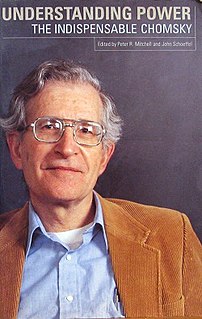 W
WUnderstanding Power: The Indispensable Chomsky is a book which came out in 2002. It is a collection of previously unpublished transcripts of seminars, talks, and question-and-answer sessions conducted by Noam Chomsky from 1989 to 1999.
 W
WIn the 2001 book The Unfinished Twentieth Century, author Jonathan Schell suggests that an essential feature of the twentieth century was the development of humankind's capacity for self-destruction, with the rise in many forms of "policies of extermination". Schell goes on to suggest that the world now faces a clear choice between the abolition of all nuclear weapons, and full nuclearization, as the necessary technology and materials diffuse around the globe.
 W
WUnholy Wars: Afghanistan, America and International Terrorism is a book by John K. Cooley, a news correspondent. The book presents Cooley's account of United States policies and alliances from 1979 to 1989 in the Middle East, the flaws and the lacunae inherent in US handling of the affairs, and their contribution into the emergence of a form of terrorism which continues to affect several regions of the World.
 W
WWar on Iraq: What Team Bush Doesn't Want You to Know is short book, written in 2002, by William Rivers Pitt and featuring an extensive interview with former United Nations weapons inspector Scott Ritter. In it Pitt and Ritter examine the Bush administration's justifications for war with Iraq and call for a diplomatic solution instead of war. Ritter argues that Iraq once possessed many unconventional arms but they have either been destroyed or degraded. Therefore, the government's claims that Iraq had vast stockpiles of "weapons of mass destruction" were "shaky at best." In reviewing this book, The Guardian called it "the most comprehensive independent analysis of the state of knowledge about Iraq's weapons programmes until the new team of inspectors went back." Along with another book published by Context Books, The New York Times singled out War on Iraq: What Team Bush Doesn't Want You to Know as an anti-war book that "emerged from, and then codified opposition to the war in Iraq."
 W
WWar on Peace: The End of Diplomacy and the Decline of American Influence is a 2018 book by American journalist Ronan Farrow, published on April 24, 2018 by W. W. Norton & Company.
 W
WWhere Men Win Glory: The Odyssey of Pat Tillman, a 2009 book written by Jon Krakauer, is a biography of Pat Tillman, an American football player who left his professional career and enlisted in the United States Army after the September 11 attacks. He subsequently was killed in 2004 in the US war in Afghanistan. To write the book, Krakauer drew heavily upon Tillman's journals, interviews with the Tillman family, Boots On the Ground by Dusk: My Tribute to Pat Tillman by Mary Tillman, and extensive research on the ground in Afghanistan.
 W
WWorld Orders Old and New is a book by Noam Chomsky, first published in 1994 and updated in 1996 by Columbia University Press. In the book, Chomsky writes about the international scene since 1945, devoting particular attention to events following the collapse of the Soviet Union. He critiques Western government, from imperialist foreign policies to the Clinton administration's promises to the poor. His judgment of the "new world order" foresees a growing abyss between the rich and poor, in the United States and internationally.